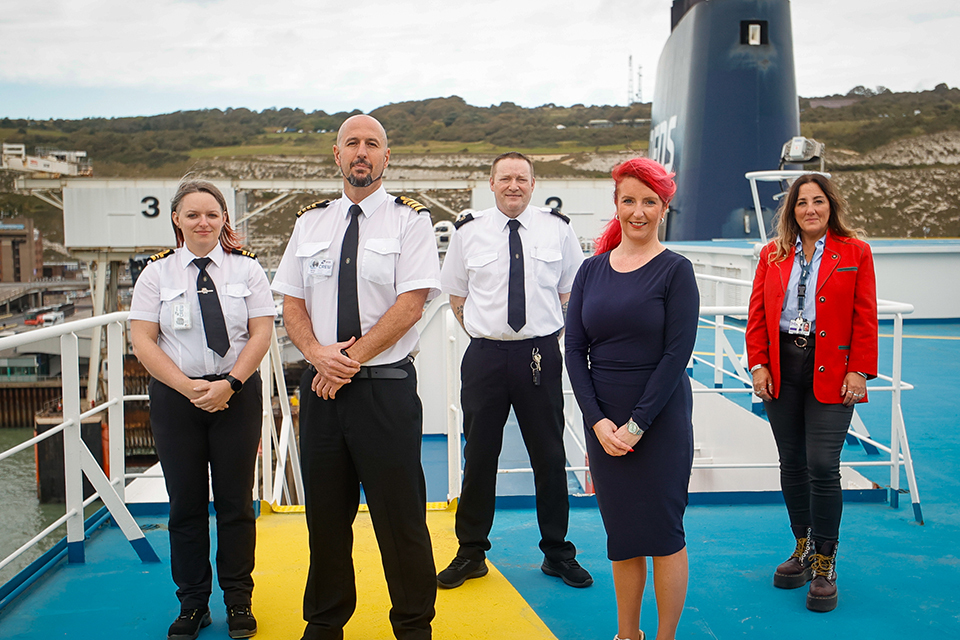- seafarers to gain tough new protections as government closes legal loophole exploited by P&O Ferries and ends unscrupulous fire and rehire practices
- thousands of seafarers will receive National Minimum Wage equivalent from 1 December 2024
- moves reinforces the government’s ambitious agenda to make work pay and ensure employment rights are fit for a modern economy
Seafarers will be better protected against rogue employers thanks to tough new legislation being introduced to Parliament this week.
The Employment Rights Bill will introduce new protections specifically devised for seafarers – toughening the laws around collective dismissal and cementing seafarer wage protections in UK law.
This package of seafarer protections is aimed at preventing another P&O Ferries scandal from happening, after hundreds of seafarers were fired and replaced with lower paid agency workers by the company in March 2022 – prompting outrage up and down the country.
The bill also includes a measure that will end ‘fire and rehire’ practices except where employers genuinely have no alternative. This change will help to prevent a race to the bottom.
The government will also close a loophole exploited by P&O Ferries – toughening the collective redundancy notification requirements for operators of foreign vessels. It means operators planning to dismiss 20 or more employees will first be legally required to notify the government and face potential prosecution or an unlimited fine.
The government will also introduce powers to implement international conventions relating to seafarer employment and is urgently exploring options to introduce mandatory employment standards at sea – by setting minimum standards for operators on working conditions.
Deputy Prime Minister, Angela Rayner, said:
We’re on a mission to end exploitative work and we’re legally enshrining our promises so no employer can abuse the system to rob their workers of the basic rights and dignity they deserve.
What we saw with P&O Ferries was an outrageous example of manipulation by an employer and exactly why we’re taking bold action to improve job security in the UK.
These long overdue changes will shield workers from the mistreatment of having their terms and conditions ripped up before their eyes, while benefiting good employers to compete on quality and innovation, rather than a race to the bottom.
Transport Secretary, Louise Haigh, said:
The mass sacking by P&O Ferries was a national scandal which can never be allowed to happen again. These measures will make sure it doesn’t.
This issue has been ignored for over 2 years, but this new government is moving fast and bringing forward measures within 100 days.
We are closing the legal loophole that P&O Ferries exploited when they sacked almost 800 dedicated seafarers and replaced them with low paid agency workers and we are requiring operators to pay the equivalent of National Minimum Wage in UK waters.
Make no mistake – this is good for workers and good for business.
With stronger protections for workers, this government will make work pay in every corner of the country.
The changes will make the sector more appealing and allow British seafarers to compete for jobs on ability and not salary, providing UK protections to all and allowing operators who provide decent employment conditions to compete against those who only apply the international minimums.
This package of legislation comes alongside the implementation of the Seafarer’s Wages Act.
Regulations will be laid on 10 October 2024 to allow the act – passed last year – to come into force on the 1 December. Alongside a similar law introduced by the French government, this will establish a ‘minimum wage corridor’ across the short straits.
The act is designed to deliver fair pay, requiring operators that call at least 120 times a year at UK ports to pay their seafarers at least the equivalent of the UK National Minimum Wage equivalent.
Operators that fail to comply will be forced to pay a surcharge at each port call it makes. Continued non-compliance could see operators refused access to the port altogether.
This transformative package of measures will mean thousands of seafarers see wage increases, level the playing field for good faith operators by preventing a race to the bottom and ensure job security and protections for those that work at sea.

